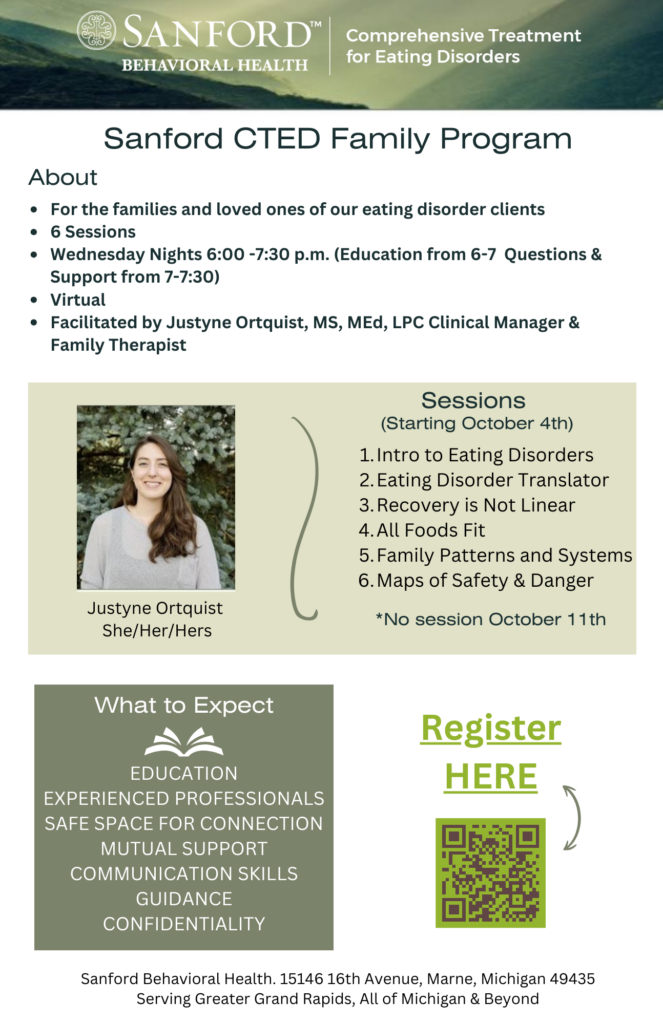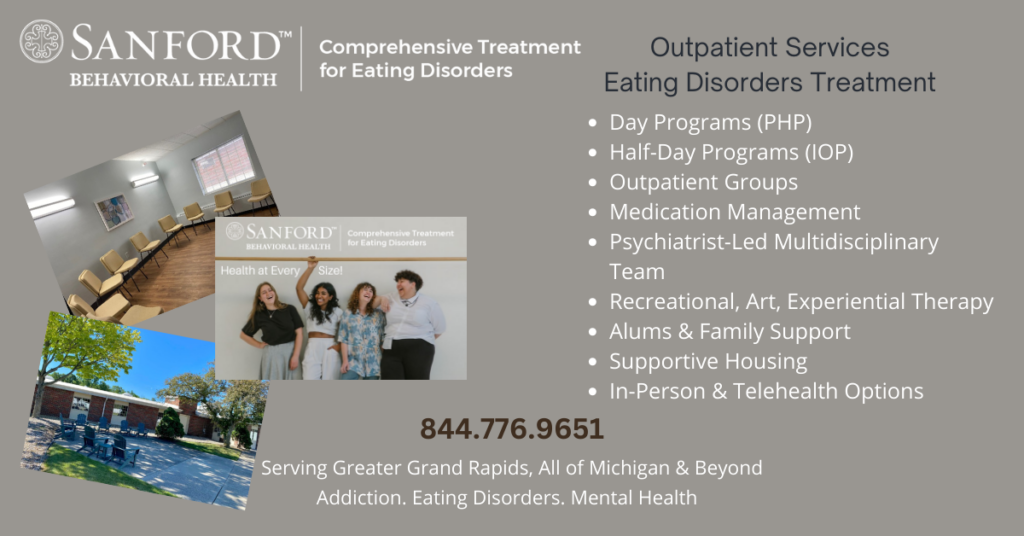The Vital Role of Family in Eating Disorder Recovery

Involving the family helps them create change as the person in treatment changes.
The Eating Disorder Center at Sanford Behavioral Health is decorated for Spooky Week with a Snoopy pumpkin patch and artwork created by clients during art therapy. Recreational therapist Amy Kosiba, CTRS, says, “Many clients come to us with tunnel vision that they are here for treatment. They think this will be the worst experience of my life. That is where we come in to make things a little lighter, bring in the color, and see their personalities, lost to an eating disorder, return.”
Sanford Behavioral Health’s mission is to expand access and provide a full continuum of quality mental health services in Michigan and beyond. At Sanford Comprehensive Treatment for Eating Disorders (Sanford CTED), we have been filling the gaps in treatment for eating disorders in Michigan since March 2021. That includes residential, day, half-day, and telehealth options.
Recently, we added a Family Program to the treatment mix. Our gold standard Family Program for addiction has been operational since 2016, and the vital role of family in recovery has long been a tenant of Sanford programming. We sat down with clinical manager Justyne Ortquist, MS, MEd, LPC, to ask about her role in creating and facilitating the Sanford CTED Family Program.

Justyne Ortquist with her niece, practicing family connection.
SBH – Why is Family Important in Eating Disorder Treatment?
Justyne Ortquist – An individual is changing while doing the work here, but they return to the context they came from. Often, the family will inadvertently reinforce old patterns if they aren’t aware and learning how to support their loved one. So, involving the family helps them create change as the person in treatment changes. This makes for a cohesive transition back to home life.
SBH – What are the primary issues when returning to the home environment?
Justyne Ortquist – One issue is guilt and shame on the family member’s part. They feel sensitive and responsible for their loved one’s eating disorder. Context plays a part, but there is a complex kind of puzzle about why the eating disorder developed. So, dealing as a family, addressing their feelings about what happened, and being able to process the events that led up to the person going to treatment is vital. Managing the difficult transition back home can also be an issue.

Registration for our clients’ loved ones is easy, and telehealth means convenience!
SBH – Do family members express anger and frustration?
Justyne Ortquist – Anger and frustration are present when loved ones don’t quite understand why the person can’t change or can’t just eat or stop exercising. Often, the anger is rooted in guilt and shame. It is easier to push out anger than to say, I feel guilty or responsible. Loved ones think everything would be better if you just put something in your mouth and chewed on it. It takes patience to understand how that change happens.
SBH – Should family members look at their behaviors?
Again, there are so many puzzle pieces, and of course, the parents’ attitudes and behaviors are one of those puzzle pieces. If our clients see diet culture, avoidance of emotions, or difficulty communicating, that can play into the eating disorder. Raising awareness of what their behaviors are and what culture they’ve grown up in can be a big piece of the family program. Presumably, if you join the family program, you don’t have blinders on and want to learn.
SBH – How does the program work?
We have a weekly education group that I facilitate. At the beginning of each week, we send out educational materials and then come together and discuss the information. We also address feelings about what’s been going on – sort of like a support group. You can bring whatever you’re working on or struggling with. There’s a therapist to help you process in a safe, contained way. We address issues and give loved ones education about eating disorders and social assumptions. My goal is to help families figure out how to communicate their feelings to each other in a way that’s not damaging. It needs to be a two-way process.
Thanks, Justyne
If you or a loved one is struggling with addiction, eating disorders, or co-occurring mental health conditions, don’t wait to change your life – click the link and get in touch today.




